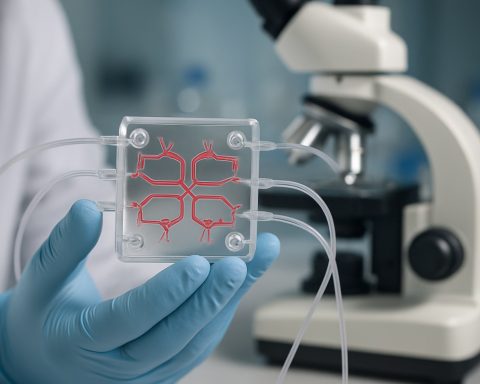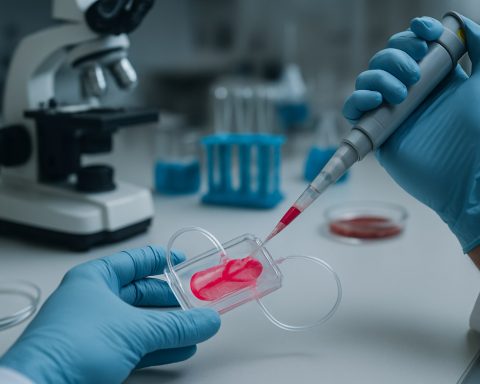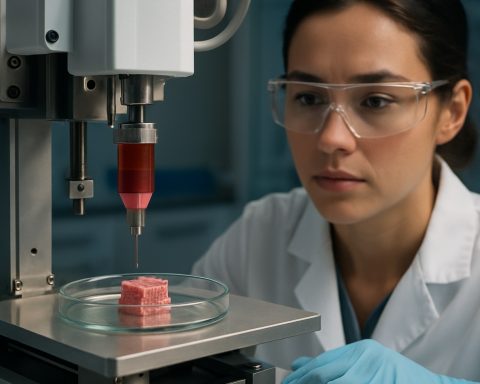- Porsche is revolutionizing battery recycling with a three-phase pilot project aimed at transforming used electric vehicle batteries into reusable resources.
- The project starts by shredding defunct batteries into ‘black mass,’ rich in materials like lithium, nickel, cobalt, and manganese.
- Porsche’s goal is to separate components efficiently for reuse, aiding their shift to sustainable electric models and promoting a circular economy.
- The initiative aligns with EU recycling mandates, which require 80% lithium recovery by 2031, highlighting Porsche’s commitment to environmental standards.
- Despite the recyclability of 95% of lithium-ion battery materials, only 5% are currently reused, marking a significant opportunity for economic and environmental improvement.
- Porsche’s efforts represent a transformative vision, encouraging the automotive industry to embrace sustainability and innovation beyond current limitations.
Picture a future where the sleek hum of an electric Porsche propels you forward, a symphony of sustainable power surging from a reimagined source—the very car batteries that once powered another electric vehicle. In an ambitious move towards environmental stewardship and industrial innovation, Porsche sets a pioneering course to tackle the formidable challenge of battery recycling.
Deep within the heart of their facility, the German automaker is orchestrating a carefully calibrated three-phase pilot project aimed at turning used electric vehicle batteries into valuable resources. Armed with confidence and a need to break away from fluctuating global material markets, Porsche seeks to emancipate itself from dependency on precariously geopolitical regions that dominate raw material supply and cost.
The initial stage of this visionary project involves shredding defunct high-voltage batteries into a granular amalgam known as ‘black mass.’ This elemental cocktail is brimming with the jewels of modern technology—lithium, nickel, cobalt, and manganese, each destined to be reborn into a new generation of electric dreams.
But it’s not just about recovery. Porsche aims to seamlessly separate this black mass into its fundamental components, each piece pristine and pure enough to be reborn into state-of-the-art electric car batteries. This endeavor, if successful on a scalable level, promises to not only bolster Porsche’s lineup with sustainably powered models but also to be a harbinger for the circular economy ethos in the automotive industry at large.
Their relentless pursuit has already yielded 65 tons of black mass—tiny, concrete steps toward revolutionizing the recycling landscape. This initiative dovetails neatly with the European Union’s stringent recycling mandates, where by 2031, 80% of a battery’s lithium content must be reclaimed.
The path to this sustainable utopia is strewn with challenges. Despite the staggering statistic that 95% of a lithium-ion battery’s materials are recyclable, a mere sliver—around 5%—ever find their way back into the production loop. This discrepancy represents both an environmental toll and a squandered economic opportunity.
Porsche’s endeavor presents a beacon of possibility, urging the automotive world to see past current limitations. Now the question—far broader than just engineering—asks us to reconsider our consumption patterns; it dares us to envision a future where obsolescence isn’t the end but just the beginning, a cycle of uninterrupted progress. As they push the boundaries of what’s possible, Porsche invites other manufacturers to join them at the cutting edge of this essential transformation. With such innovation at the helm, who knows where the road will lead next?
Revving Up Sustainability: How Porsche’s Battery Recycling is Shaping the Future of Electric Vehicles
Introduction
In a groundbreaking endeavor, Porsche is spearheading an initiative that could redefine how electric vehicle (EV) batteries are recycled, setting a new benchmark for sustainability. By turning used EV batteries into a resource pool, Porsche aims not only to reduce environmental impact but also to secure a stable supply chain independent of geopolitical tensions.
The Battery Recycling Process: A Game-Changer for Sustainability
The Three-Phase Pilot Project
Porsche’s pilot project to recycle EV batteries operates in three strategic phases:
1. Shredding into Black Mass: The initial process involves shredding batteries to produce a granular mixture known as ‘black mass,’ containing valuable metals such as lithium, nickel, cobalt, and manganese.
2. Separation of Components: This phase focuses on separating these metals with the purity required for new battery production.
3. Material Rejuvenation: Finally, the purified materials are crafted into new and efficient batteries, ready to support Porsche’s next generation of EV models.
Comparison with Market Trends
Global Battery Recycling Landscape
– Industry Leaders: Companies like Tesla and Redwood Materials have also entered the battery recycling space, aiming to close the loop and reduce dependency on virgin materials.
– Regulatory Compliance: In Europe, strict recycling mandates require that by 2031, 80% of a battery’s lithium content must be reclaimed, pushing the industry towards innovative solutions.
Challenges and Limitations
Despite the promise of 95% recyclability for lithium-ion batteries, only around 5% of the materials find their way back into the production cycle. Key obstacles include:
– Technical Challenges: Efficiently separating mixed materials and purifying them for reuse is complex.
– Economic Viability: High costs associated with the recycling process hinder large-scale implementation.
Real-World Applications and Use Cases
Automotive Industry Insight
– Enhanced Resource Management: Porsche’s initiative exemplifies how automakers can secure raw material supplies amidst global fluctuations, ensuring economic stability.
– Reduced Dependency: By reclaiming high-value materials, automakers can lessen their dependency on mining, promoting environmental conservation.
Actionable Recommendations for Readers
– Support Sustainable Practices: Opt for brands and products that prioritize sustainability and recycling.
– Stay Informed: Follow industry developments and support policies and initiatives that foster recycling and sustainability in technology sectors.
– Encourage Local Recycling: Contribute to local recycling programs and initiatives to enhance community sustainability efforts.
Conclusion
Porsche’s ambitious recycling project not only sets a benchmark for sustainability in the automotive industry but represents a significant step towards a circular economy. By championing innovations in recycling, Porsche illustrates a future where the end of a battery’s life is merely the beginning of another, reinforcing global efforts toward eco-friendly practices.
For more insights on sustainable automotive innovations, visit Porsche.
Related Topics and Further Reading
– Strategies for Enhancing Battery Recycling Efficiency
– The Role of Regulatory Bodies in Promoting Green Technology
– Innovations in EV Technology and Their Environmental Impact
By embracing these principles and advancements, both consumers and industries can contribute to a more sustainable and prosperous future.









